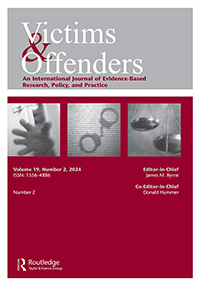In recent years, victimological research has turned toward the study of victims’ perceptions or meanings of justice, challenging the traditional and prevailing understanding of the retributivist approach; this shift in focus locates the present study. Its goal was to assess victims’ justice interests and recognize its complexity by identifying victim and crime-related variables that could play a role in shaping those interests. For this propose, a quantitative approach was adopted and victims’ justice interests were measured through a scale created for this research. Victim and crime characteristics, together with psychological constructs related to victims’ recovery, were considered key variables. The study took place in Santiago of Chile and involved 133 direct and indirect victims of serious crimes – in all cases, criminal investigation processes were ongoing. Descriptive, comparative and correlational analyses were carried out. Once key variables were identified, predictive models for each justice interest were developed using multiple linear regression. Our results illustrated that type of crime, gender, prior victimization and recovery-related psychological variables played a role in shaping and predicting victims’ justice interests. The paper concludes discussing the contribution of these findings to research and public policy.
Uncovering Justice Interests of Victims of Serious Crimes: A Cross-sectional Study
Article in Victims & Offenders by Daniela Bolivar, Victoria Sanchez-Gomez en Marit De Haan.

Released in 2022
Available at:
- https://doi.org/10.1080/15564886.2022.2067278



